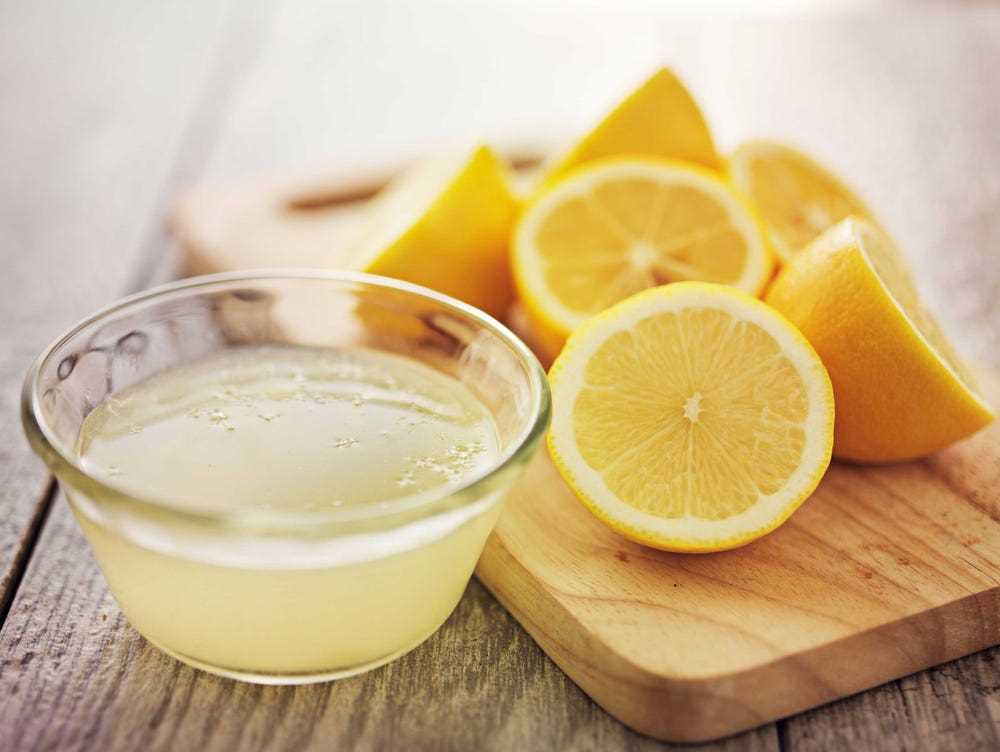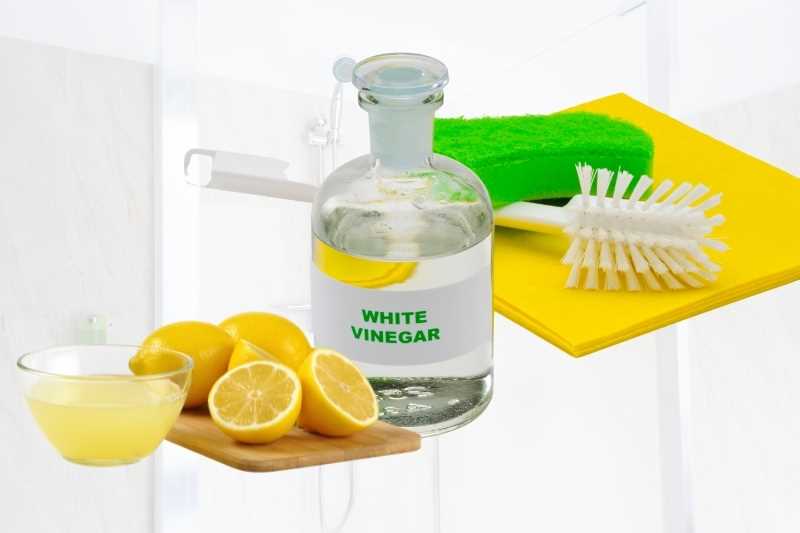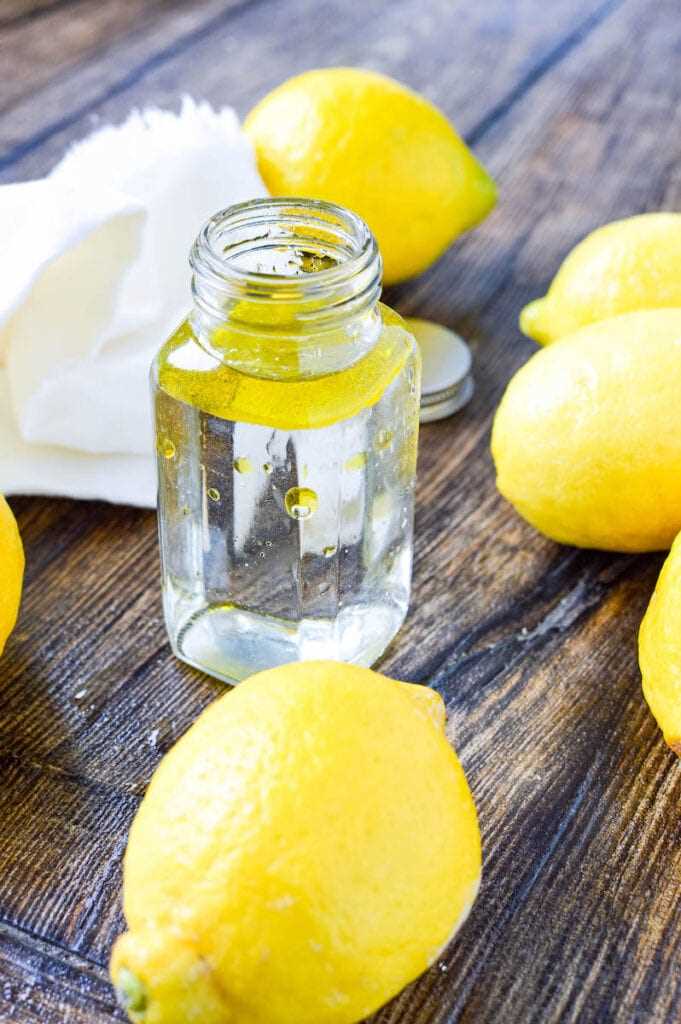




If you’re looking for a natural, cost-effective way to clean your floors, look no further than lemon juice. Lemon juice is not only a popular cooking ingredient, but it can also be a powerful cleaning agent. Its acidic properties help break down dirt, grease, and grime, leaving your floors sparkling clean.
One of the advantages of using lemon juice for cleaning is that it is non-toxic and safe to use around children and pets. Unlike many chemical cleaners, lemon juice doesn’t leave behind any harmful residues that could potentially harm your loved ones. It is a natural alternative that is gentle yet effective.
In addition to being safe, lemon juice is also versatile. It can be used on various types of flooring, including hardwood, tile, and laminate. Whether you have stains, spills, or general dirt and grime, lemon juice can help tackle the mess and leave your floors looking as good as new.
So, how do you use lemon juice to clean your floors? Simply mix equal parts lemon juice and water in a spray bottle and spray the solution onto the dirty areas. Let it sit for a few minutes to allow the acidity to break down the dirt, then wipe away with a damp cloth or mop. For tougher stains, you can also sprinkle some baking soda on the area before spraying with the lemon juice solution.
Keep in mind that lemon juice may not be suitable for all types of flooring, especially those that are sensitive to acids. It’s always a good idea to test a small, inconspicuous area before using lemon juice on your entire floor. Additionally, avoid using lemon juice on waxed or finished floors, as it can cause damage.
In conclusion, lemon juice is an effective and natural cleaner for floors. It is safe to use, versatile, and can help remove dirt, grease, and grime. Give it a try and see the difference it can make in the cleanliness and appearance of your floors!
Does Lemon Juice Clean Floors Effectively?
Lemon juice is a natural cleaning agent that can be used to clean various surfaces, including floors. It is not only effective in removing dirt and grime but also leaves a refreshing citrus aroma behind.
One of the main reasons why lemon juice is effective in cleaning floors is its acidity. The natural acids in lemon juice, such as citric acid, help to break down and dissolve dirt and stains. This makes it a powerful cleaner, especially when dealing with stubborn or greasy messes.
Additionally, lemon juice has antimicrobial properties. This means it can help kill bacteria and other microbes that may be lurking on your floors. This makes it a great choice for households with pets or small children who spend a lot of time on the floor.
To clean your floors effectively with lemon juice, you can mix it with water or other cleaning ingredients. Here’s a simple recipe:
- Fill a bucket with warm water.
- Add the juice of two or three lemons to the water.
- Optional: Add a few drops of dish soap for extra cleaning power.
- Stir the mixture well.
- Using a mop or cloth, dip it into the lemon juice solution and wring out the excess liquid.
- Start mopping your floors, working in small sections.
- Rinse the mop or cloth as needed.
- Once you’ve cleaned the entire floor, rinse with clean water to remove any residue.
- Allow the floor to air dry or dry it with a clean cloth.
It’s important to note that lemon juice is not recommended for all types of floors. For example, it may not be suitable for use on marble or other sensitive surfaces. Always test a small, inconspicuous area before using lemon juice to clean your floors.
In conclusion, lemon juice can be an effective and natural alternative for cleaning floors. Its acidity helps to break down dirt and stains, while its antimicrobial properties kill bacteria. Just be sure to test it on your floors first and avoid using it on sensitive surfaces.
The Benefits of Using Lemon Juice for Cleaning Floors

Natural Disinfectant
Lemon juice is known for its antibacterial and antiseptic properties, making it an effective natural disinfectant for cleaning floors. Whether you have hardwood, tile, or laminate floors, lemon juice can help kill germs and bacteria that may be present on the surface.
Fresh and Clean Scent
In addition to its cleaning properties, lemon juice also leaves a refreshing and citrusy scent behind. Unlike chemical-based cleaners that often have strong and artificial fragrances, lemon juice provides a natural and pleasant aroma that can freshen up the entire room.
Gentle on Surfaces

Lemon juice is a gentle yet effective cleaner, making it suitable for use on various types of flooring. Unlike some commercial cleaners that contain harsh chemicals, lemon juice is unlikely to cause any damage or discoloration to your floors.
Removes Stains and Spots
Lemon juice’s acidic nature makes it a powerful stain-removing agent. Whether you’re dealing with stubborn food stains or water spots, applying lemon juice directly to the affected area and scrubbing gently can help lift the stains and restore the floor’s appearance.
Economical and Eco-Friendly
Using lemon juice as a floor cleaner is not only cost-effective but also environmentally friendly. Lemon juice is readily available, affordable, and doesn’t contain any harsh chemicals that could be harmful to you or the environment. By choosing lemon juice as your go-to floor cleaner, you can reduce your reliance on commercial cleaners and their negative impact on the planet.
Easy to Make and Use
One of the greatest benefits of using lemon juice for cleaning floors is its simplicity. All you need to do is mix lemon juice with water in a spray bottle, and you’re ready to go. Simply spray the mixture onto the floor and clean as usual. It requires no special preparation or complicated steps, making it a convenient option for everyday floor cleaning.
Safe for Children and Pets
When it comes to cleaning floors, the safety of your family, including children and pets, is paramount. Lemon juice provides a safe cleaning solution that doesn’t pose any significant health risks. Its natural ingredients make it a preferred choice for households with young children or pets who may come into contact with the cleaned surfaces.
| Benefits: | |
|---|---|
| Natural disinfectant | |
| Fresh and clean scent | |
| Gentle on surfaces | |
| Removes stains and spots | |
| Economical and eco-friendly | |
| Easy to make and use | |
| Safe for children and pets |
How to Use Lemon Juice to Clean Floors
Lemon juice is a natural and effective cleaning agent that can be used to clean floors. Here are some simple steps on how to use lemon juice for cleaning floors:
- Gather the ingredients: To use lemon juice for cleaning floors, you will need fresh lemons, water, and a spray bottle. Make sure you have enough lemons to extract sufficient juice for your cleaning solution.
- Extract the lemon juice: Cut the lemons in half and squeeze them to extract the juice. You can use a citrus juicer or simply squeeze them by hand. Strain the juice to remove any pulp or seeds.
- Mix the cleaning solution: In a spray bottle, combine the lemon juice with an equal amount of water. Shake the bottle well to mix the solution thoroughly.
- Prepare the floor: Sweep or vacuum the floor to remove any loose dirt and debris. This will make the cleaning process more effective.
- Apply the lemon juice solution: Spray the lemon juice solution onto the floor in sections. Use a mop or a soft cloth to spread the solution evenly and scrub gently, focusing on any tough stains or dirty areas.
- Rinse the floor: After cleaning, rinse the floor with clean water to remove any residue. This step is especially important for delicate flooring materials to prevent any damage.
- Dry the floor: Finally, dry the floor using a clean, dry cloth or allow it to air dry. Avoid walking on the wet floor to prevent any slips or accidents.
Using lemon juice to clean floors is a natural and eco-friendly alternative to harsh chemical cleaners. The citric acid in lemons helps to break down dirt and grime, leaving your floors clean and fresh. Plus, the pleasant scent of lemons will leave your home smelling delightful!
Note: Lemon juice is safe to use on most floors, but it’s always a good idea to test it on a small, inconspicuous area first to ensure it doesn’t cause any damage or discoloration.
Precautions When Using Lemon Juice on Floors
While lemon juice can be an effective natural cleaner for floors, there are a few precautions that should be taken to ensure safe and effective use:
- Dilute the lemon juice: Lemon juice should be diluted with water before being used to clean floors. Undiluted lemon juice can be too acidic and may damage certain types of flooring, such as hardwood or laminate. Mix equal parts lemon juice and water to create a safe and effective cleaning solution.
- Test on a small area: Before applying lemon juice to the entire floor, it’s important to test it on a small, inconspicuous area. This will help you determine if the lemon juice will cause any discoloration or damage to the flooring material.
- Avoid using on delicate or porous surfaces: Lemon juice is acidic and can potentially damage delicate or porous surfaces, such as marble or unsealed grout. It’s best to avoid using lemon juice on these types of surfaces to prevent any potential damage.
- Do not use on waxed floors: Lemon juice can strip away wax from floors, so it should not be used on waxed surfaces. If you have waxed floors, consider using a different cleaning solution specifically designed for waxed floors.
- Rinse thoroughly: After cleaning the floor with lemon juice, it’s important to rinse the area thoroughly with clean water. This will help remove any residue and prevent the acidic lemon juice from causing damage over time.
- Avoid prolonged contact: While lemon juice can be an effective cleaner, it’s important to avoid leaving it on the floor for a prolonged period of time. This can increase the risk of damage to the flooring material. After cleaning, make sure to promptly and thoroughly rinse the area.
- Protect your skin and eyes: When working with lemon juice, it’s important to protect your skin and eyes. Consider wearing gloves and goggles to prevent any potential irritation or damage.
By following these precautions, you can safely and effectively use lemon juice as a natural cleaner for your floors.
Final Thoughts on Cleaning Floors with Lemon Juice
Using lemon juice as a natural cleaner for floors can be a great option, especially if you prefer to avoid harsh chemicals. However, there are a few things to keep in mind.
1. Effectiveness
Lemon juice can be effective at removing dirt, grease, and stains from floors. Its acidity helps break down grime and can leave your floors looking fresh and clean. However, it may not be as powerful as commercial cleaners, especially for tougher stains or heavily soiled floors.
2. Safety
Unlike chemical cleaners, lemon juice is non-toxic and generally safe to use around pets and children. However, it is still important to patch test lemon juice on a small, inconspicuous area of your floor to make sure it does not cause any damage or discoloration.
3. Smell
Lemon juice has a pleasant, fresh scent that can leave your home smelling clean and citrusy. However, some people may find the smell too strong or overpowering. If you are sensitive to scents or prefer a different fragrance, you may want to consider using other natural cleaning alternatives.
4. Limitations

While lemon juice can be effective at cleaning certain types of floors, it may not be suitable for all surfaces. Avoid using lemon juice on marble, granite, or other natural stone floors, as the acid can potentially cause damage. Additionally, lemon juice may not be as effective on heavily waxed or sealed floors, as the protective coating can prevent the lemon juice from penetrating and breaking down dirt effectively.
5. Additional Tips
- Mix lemon juice with water or vinegar for a more diluted solution, especially for sensitive floors.
- Always mop with a damp, not soaking wet, cloth or mop to prevent excess moisture on your floors.
- Consider using a microfiber mop or cloth for better absorption and an easier clean.
In conclusion, using lemon juice as a floor cleaner can be an effective and eco-friendly option. However, it is important to consider the limitations and potential risks before using it on your floors. If you have any doubts or concerns, it is always best to consult the manufacturer’s instructions or seek professional advice.
FAQ
Can lemon juice be used to clean all types of floors?
Yes, lemon juice can be used to clean most types of floors, including hardwood, tile, laminate, and linoleum. It is a natural and effective cleaner that can remove dirt, grime, and stains.
How do you use lemon juice to clean floors?
You can mix lemon juice with water in a spray bottle and then spray it on the floor. Use a mop or a cloth to scrub the floor gently. Rinse the floor with clean water afterwards to remove any residue.
Does lemon juice leave a sticky residue on the floor?
No, lemon juice does not leave a sticky residue on the floor. However, it is important to rinse the floor with clean water after using lemon juice to ensure that all the residue is removed.
Can lemon juice remove tough stains on floors?
Yes, lemon juice can be effective in removing tough stains on floors. Its acidic properties help to break down and dissolve stains, making them easier to scrub away.
Is lemon juice safe to use on coloured floors?
Lemon juice is generally safe to use on coloured floors, but it is always a good idea to test it on a small, inconspicuous area first. Some coloured floors may be more sensitive to acids and may get discoloured.
Is lemon juice a disinfectant for floors?
Lemon juice has some disinfectant properties due to its acidity, but it is not as effective as commercial disinfectants. If you want to disinfect your floors, it is best to use a disinfectant specifically designed for that purpose.
Can lemon juice be used to remove bad odours from floors?
Yes, lemon juice can help to remove bad odours from floors. Its acidic properties can neutralize unpleasant smells and leave a fresh citrus scent behind.












